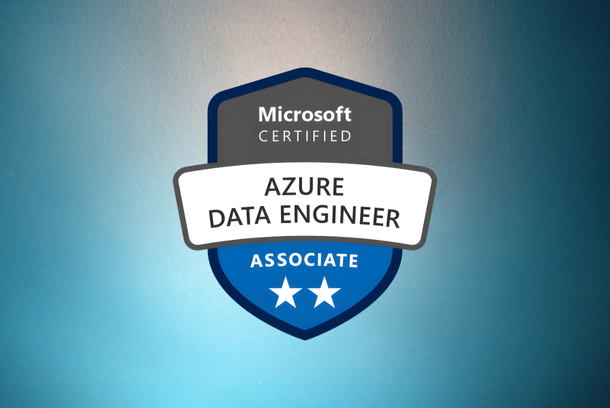Role of Azure Kubernetes Service (AKS) in Data Engineering
In today’s data-driven world, organizations are constantly seeking reliable, scalable, and cost-efficient ways to process and manage massive volumes of data. Traditional data platforms often struggle to handle the growing complexity of modern data workloads, especially when businesses need real-time insights, flexibility, and cloud-native solutions. This is where Azure Kubernetes Service (AKS) steps in as a powerful enabler for data engineering.
AKS is a managed Kubernetes service provided by Microsoft Azure, designed to simplify containerized application deployment and management. While Kubernetes is already the industry standard for orchestrating containers, AKS takes it further by removing operational overhead, offering seamless integration with Azure’s ecosystem, and unlocking cloud-native patterns for data engineering.
Why Kubernetes for Data Engineering?
Data engineering involves designing and managing pipelines that collect, transform, and deliver data for analytics, machine learning, and business intelligence. These pipelines must handle large data volumes, support real-time processing, and remain reliable under fluctuating workloads.
Kubernetes provides an ideal foundation for data engineering because:
- Scalability: Automatically scales up and down based on data pipeline workloads.
- Resilience: Ensures fault tolerance and high availability of data jobs.
- Portability: Containerized workloads can run consistently across different environments.
- Automation: Supports automation for deployment, scaling, and monitoring.
Azure Kubernetes Service builds on these strengths by tightly integrating Kubernetes with Azure’s cloud ecosystem.
Key Roles of AKS in Data Engineering
1. Containerized Data Pipelines
Data engineers can package ETL (Extract, Transform, Load) processes into Docker containers and run them on AKS. This eliminates dependency issues, ensures consistent execution across environments, and makes it easy to deploy update.
2. Integration with Big Data and Analytics Frameworks
AKS seamlessly integrates with frameworks commonly used in data engineering:
- Apache Spark on Kubernetes for batch and streaming data processing.
- Kafka on AKS for real-time event-driven pipelines.
- MLflow and TensorFlow for machine learning lifecycle management.
3. Scalable Storage and Data Access
AKS works in tandem with Azure storage services like Data Lake Storage, Blob Storage, and SQL Database. This enables building scalable, decoupled pipelines with reliable data flow.
4. Orchestration of Complex Workflows
Data pipelines require multiple steps – ingestion, transformation, validation, and delivery. With workflow tools like Airflow or Azure Data Factory running on AKS, engineers can orchestrate thousands of jobs seamlessly.
5. Cost-Effective Resource Management
Data workloads are often bursty – needing high compute power during processing peaks. With AKS cluster autoscaling, organizations only pay for the resources they use.
6. Security and Governance
AKS integrates with Azure Active Directory, provides role-based access controls, and ensures secure data handling. These features make it compliant with global standards.
Why Learn AKS with AccentFuture?
- Industry-Focused Curriculum – Covering real-world AKS use cases in data engineering.
- Hands-On Labs – Practical exercises to deploy pipelines, Spark jobs, and machine learning workflows.
- Expert Trainers – Learn from experienced Azure data engineers.
- Career Growth Support – Resume preparation, interview guidance, and project-based learning.
Conclusion
Azure Kubernetes Service (AKS) is no longer just a developer tool – it has become a core enabler for data engineering. By simplifying container orchestration, integrating with big data frameworks, and ensuring cost-effective scalability, AKS empowers organizations to manage modern data pipelines with confidence.
If you’re looking to advance your career in Azure Data Engineering, mastering AKS is essential. At AccentFuture, we provide specialized Azure Data Engineering training that covers AKS, Spark, Data Factory, and more – helping professionals like you stay ahead in the competitive cloud landscape.
👉 Explore our Azure Data Engineering Training Programs and take the next step in your data engineering journey.
Related blogs
- https://www.accentfuture.com/category/cloud-tools/azure-data-engineer/
- https://software086.wordpress.com/2025/04/23/securing-data-in-azure-encryption-rbac-and-compliance/
- https://www.tumblr.com/siri0007/780358327092805632/real-time-data-processing-with-azure-stream
- https://azure209.blogspot.com/2025/04/introduction-to-azure-data-engineering.html
contacts
- 🚀Enroll Now: https://www.accentfuture.com/enquiry-form/
- 📞Call Us: +91-9640001789
- 📧Email Us: contact@accentfuture.com
- 🌍Visit Us: AccentFuture



Comments
Post a Comment